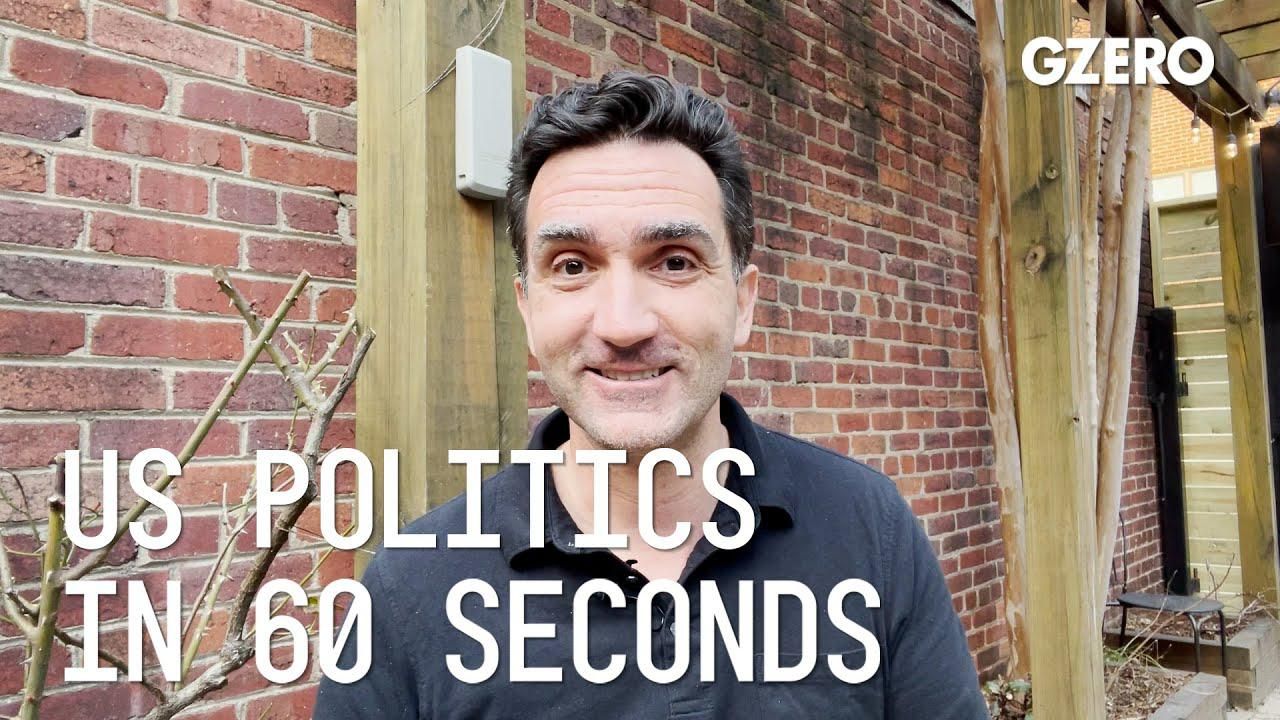US Politics In 60 Seconds
Biden's massive, historic stimulus relief bill passes

Biden's Massive, Historic Stimulus Relief Bill Passes | US Politics In :60 | GZERO Media

Jon Lieber, Managing Director of the United States for the Eurasia Group, shares his perspective on the historic American Relief Act:
The American Relief Act just passed. Joe Biden's big $1.9 trillion stimulus has now passed the Senate and the House of Representatives and is on its way to the president's desk to be signed into law. This is a massive, historic piece of legislation on top of already $3 trillion in stimulus that Congress has provided to respond to the novel coronavirus. Here's another almost $2 trillion, that two thirds of which will be spent in this calendar year.
So, there's a couple of things we're watching. First, stimulus checks are going to start hitting Americans bank accounts as soon as next week. This will give additional spending power to a lot of Americans and probably helps make this bill a very popular piece of legislation. Second, there's a question over how many of these pieces that are in this bill will be extended in future acts. There's an expansion of the child tax credit, an expansion of the earned income tax credit, an expansion of unemployment insurance, which in the last crisis, in the global financial crisis, was extended 12 times by Congress in various acts. This round of unemployment benefits expires in September. We'll see if Congress wants to extend that again. Probably depends on how bad the unemployment situation is at the time.
Finally, one thing that's really important to watch for is inflation. This bill is so big and it's coming on top of an economy that looks like it's going to be red hot, with the economic reopening's happening in the spring as the coronavirus fades in the rearview mirror, that it could potentially be inflationary. This will be a problem because it could lead the Fed to tap the brakes, raise interest rates a little bit, and that would put downward pressure on Congress's ability to do a future stimulus bill in the form of an infrastructure bill, which Biden has said he wants to do in order to drive a green energy transformation. Now, that money will be spent over a longer period of time and very likely will be offset by tax increases. But any negative consequences coming out of this bill could potentially slow that bill down or shrink it in size. Overwhelming likelihood is, though, that this bill is going to help the economy a lot this year, going to get money to a lot of people who need it. And if they don't need it, they really want it. This could be a very popular piece of legislation that could potentially change the way the US does cash transfer payments to low-income households if those provisions are extended.
1,170: The number of high-rise buildings in Kyiv that were left without heating following a barrage of Russian attacks last night on Ukraine’s capital and its energy facilities, per Kyiv Mayor Vitali Klitschko.
U.S. President Donald Trump and Japanese Prime Minister Sanae Takaichi hold up signed documents regarding securing the supply of critical minerals and rare earths, at a bilateral meeting at Akasaka Palace in Tokyo, Japan, October 28, 2025.
Representatives from the European Union, United Kingdom, Japan, and others will meet in Washington this week to discuss a strategic alliance on critical minerals.
80,000: The number of people estimated to be in the streets of Czechia on Sunday to show their support for President Petr Pavel after he blocked the nomination of an environmental minister who performed the Nazi salute and posted Nazi memorabilia.
The US has started handing $1,000 to the bank accounts of newborn babies. But can policies like this one help boost sagging birthrates in advanced democracies?